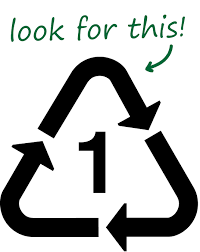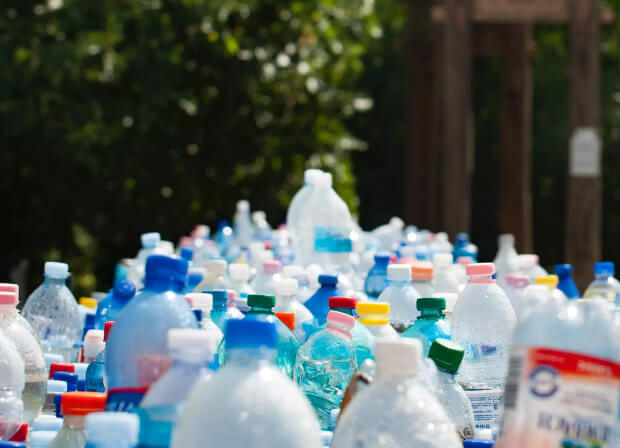Our guide is helping to debunk the confusion around what plastic can or cannot be recycled.
There is a great deal of confusion when it comes to recycling plastics.
According to The Independent, on average, every UK household uses 373 plastic bottles each year, of which only 29 (less than 10 per cent) are recycled. But is this through lack of trying or lack of understanding?
What household plastic can I recycle?
To understand what can or cannot be recycled, check the recycled triangle on the packaging (usually found underneath) and note down the number.

Recycling codes 1 and 2
The numbers 1 and 2 are widely recyclable by the majority of local authorities so any plastics with these numbers can be dropped straight into your plastic recyclable waste, not general waste. These items usually include; plastic drinks bottles, yoghurt pots, milk bottles, shampoo bottles, margarine tubs and bottom caps/lids. This will account for a good percentage of your general day to day plastic consumption.
Recycling codes 4 and 5
If you notice a number 4, or 5 these are often recycled as part of your plastic waste, however, it is always best to check with your local authority. Visit the Recycle Now website for more details on accepting recycling codes 4 and 5 in your area. These sorts of plastics include; plastic bags or plastic food wrappers, packing tapes or plastic straws.
Recycling codes 3, 6 and 7
Anything with a code 3, 6 or 7 are none recyclable plastics. These include cd cases, cling film, blister packaging and plastic pipes.
Understanding these different types of plastics is the first step to a healthier planet. Switching your businesses packaging to a 100% recyclable plastic will also help drive forward a greener environment. Speak to Tri-pack today regarding your business plastic consumption and how we can all work together for a more sustainable future.

